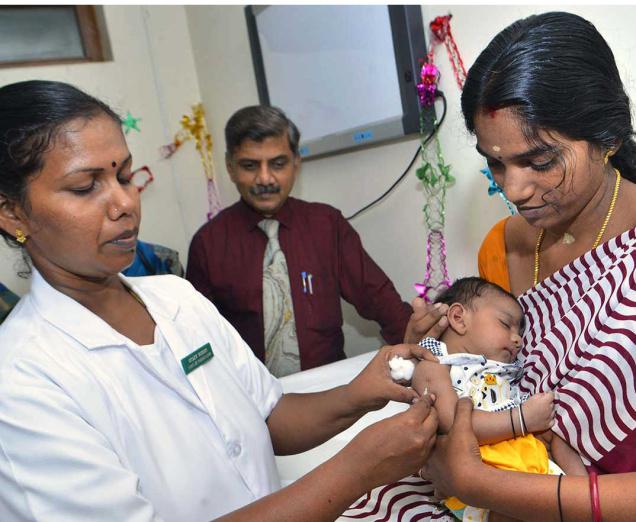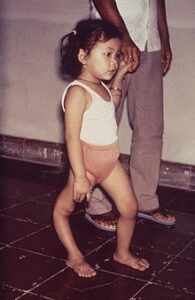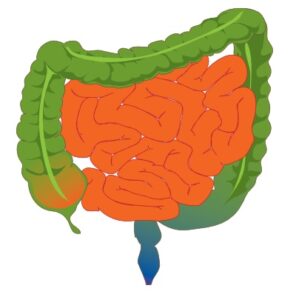Everything you wanted to know about childhood vaccines

Written by Neucrad health, February 19, 2019
Many of you have noticed that every new-born gets a vaccination card at the time of discharge from the hospital or the birth centre. You might wonder what the purpose of numerous visits to hospitals for a tiny little soul getting countless vaccination shots is. However, if you ask the experts for their opinion, you would learn that these infant vaccines act as powerful weapons safeguarding babies against a plethora of diseases. Mother’s breast milk may offer essential antibodies to babies against many harmful infections. However, this protective shield wears off within the first year of birth, and after that, the infant becomes vulnerable to numerous diseases. Moreover, many babies do not get sufficient quantity of mother’s milk due to health issues or busy schedules of mothers. In this write-up, we would study in detail the significance of childhood vaccines and their plan till five years. [1]
What are Vaccines?
Human body comes in contact with multiple pathogens regularly. The immune system considers these microbes as foreign substances or antigens and produces specific antibodies to fight against these pathogens. Vaccines contain a diluted concentration of different microbes so that it can trigger an antigen-antibody response and result in the production of a sufficient quantity of antibodies for future use. Since vaccines are weakened version of pathogens, they can hardly initiate the development of any symptoms of infection in babies. So, opting for regular vaccination safeguards children from future microbial attack. [2]
Is it Safe to Get Vaccinated at Regular Interval?
When individuals come across the fact that vaccines have a diluted concentration of pathogens, it is natural to become concern about the possible side-effects of different types of vaccines. However, the truth is, it is only because of these vaccines many deadly diseases including smallpox, polio, tuberculosis, and tetanus have become rare in many developed and developing countries like India. The protection coverage initiated by these immunisation shots far outweighs mild reactions produced on receiving the vaccines. Infants occasionally may develop fever, lump under the skin, or tenderness in the area, but they go away within a day or two in most of the cases. [2]
How Often Should Infants be Vaccinated?
After knowing the immense advantages of different categories of vaccine parents would naturally be inclined to learn about the vaccination schedule for children. Here is a simplified version of the immunisation schedule recommended by the Centres for Disease Control and Prevention (CDC).
| Name of Disease | Child’s Age during Vaccination | Number of Doses | Remarks |
| Hepatitis B | Birth, 1-2 months, 6-18 months | 3 | Protects the child’s liver from Hepatitis B infection |
| DTaP (Diphtheria, Tetanus, Pertussis) | 2 months, 4 months, 6 months, 15-18 months, 4-6 years | 5 | Protects the child against diphtheria, tetanus, and pertussis |
| Polio | 2 months, 4 months, 6-18 months, 4-6 years | 4 | Paediatrics may prescribe an extra dose if the child travels to specific countries. |
| Influenza type B | 2 months, 4 months, (6 months), 12-15 months | 4 | Protects the child from influenza type b infection. |
| Pneumonia | 2 months, 4 months, 6 months, 12-15 months | 4 | Sometimes also recommended for older children. |
| Rotavirus | 2 months, 4 months, 6 months | 3 | Protects the child from dehydration. |
| MMR | 12-15 months,4-6 years | 2 | Offers protective cover against measles, mumps, and rubella |
| Varicella | 12-15 months,4-6 years | 2 | Protect against chicken pox |
| Hepatitis A | 12-24 months | 2 | Protects against Hepatitis A |
The above was the critical diseases and infections against which the CDC recommends immunisation of children in most of the countries. You may consult with physicians for details.
Are there any specialised cases when a child should not be Vaccinated?
There are some exceptional situations when Paediatricians do not recommend immunisation of babies. It may happen when the child gets diagnosed with a specific type of cancer where the chemotherapy already interferes with the immune system of the child and further lower their body’s ability to fight against pathogens. Getting vaccinated in this circumstance may lead to the development of severe symptoms of the diseases. [2]
Precautions for Vaccinations
Most of the vaccines administered to children go through stringent quality check procedures, so there are hardly any chances of severe side-effects. Antipyretic and analgesic medications can take low-grade fever, swelling or redness on the skin after vaccination programme. However, if the child is already suffering from an infection or fever, Paediatricians advocate delaying the immunisation schedule for a week or until the child feels better. [4]
Today we need awareness because child health is too important in our life. This write-up may address some of your queries regarding vaccination. You may consult with your physician for learning more about it.
Image illustration and credit: Injectable Polio Vaccine, Smartshiva1988, CC-BY-SA-4.0







